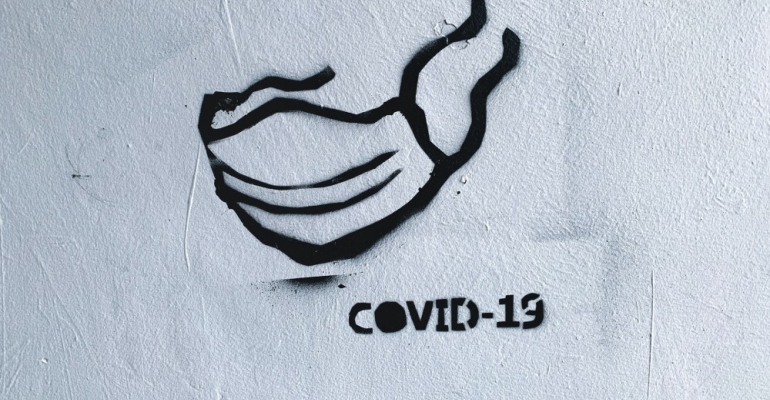
Who Are the Vulnerable?
One of my fellow elders has cystic fibrosis. You wouldn’t know, because he is very healthy, so I wouldn’t call him ‘vulnerable’, even if, technically, he is. At the moment he is fully involved in church life but we’re having conversations about whether he will need to withdraw more. I don’t want him to get sick.
Not all those labelled as vulnerable are willing to accept the term, even if they look more vulnerable than my fellow elder. Disability campaigner Baroness Jane Campbell recently highlighted some of the problems.
She said that many disabled people placed in the category of “vulnerable” or those who were told they needed to “shield” – as she has – had been forced instead to campaign for their basic human rights throughout the pandemic because the concept of “vulnerability… simply serves to anonymise our humanity and human rights”.
She pointed to the use of Care Act easements under the Coronavirus Act that led to disabled people losing vital care and support; the use of “frailty scoring” to prioritise ventilation and intensive care treatment; and GPs “ringing around asking the vulnerable if they wanted to consider a DNR on their notes”.
She said: “It began to feel like there was only a very short walk from being one of the ‘vulnerables’ to the chilling club of the ‘expendables’.”
From Baroness Campbell’s perspective, to be labelled ‘vulnerable’ actually makes the disabled more vulnerable. That’s a perspective worth thinking about.
Perhaps our perspective needs widening further still. We know that those who are most ‘vulnerable’ to covid have pre-existing health conditions. The majority of those who have died with the virus are aged over 80 and almost all of them had co-morbidities. It’s easy to look at a sick old person and label them vulnerable. But with a different perspective the most vulnerable could actually be the young and healthy – those who are at almost no risk of serious illness or death from the virus itself.
In the UK it is the young (scolded for being selfish and ‘killing their grannies’) who have been most negatively affected by the response to the virus. It is young people who have had their education massively disrupted. It is young people who have the least job and financial security. It is the young who live in the most cramped accommodation. It is the young who are paying university tuition fees while being kettled in their halls of residence. It is today’s young people who will have to pay off our extraordinary national debts tomorrow.
This gets worse at a global level. Back in May, Indian media was reporting what could be the result:
At least 49 million people across the world are expected to plunge into “extreme poverty” — those living on less than $1.90 per day — as a direct result of the pandemic’s economic destruction and India leads that projection, with the World Bank estimating some 12 million of its citizens will be pushed to the very margins this year.
More anecdotally, this update from Simon Guillebaud in Burundi brings the issues home:
As with so much of the developing world, the economic impact has done far more damage than the disease itself. Celestin and I shared an office for 5 years at our income-generating King’s Conference Centre. He quietly asks me for a chat and says he’s speaking on behalf of the staff, several of whom I observed on arrival were noticeably thinner. Due to covid and loss of business, either some workers had to be let go, or everyone would have to take a salary reduction. They decided to stick together, but everyone has had a 40% cut. Imagine your salary was $100/month, and now it’s $60… and food prices have gone up! “Simon, it’s desperate. We can’t afford the bus so are walking each day in the sun all the way, some of us upwards of 20km.”
Perhaps, then, when we talk about ‘protecting the vulnerable’ we should be thinking on a global level and the impact of our actions on the economically poor.
Another angle on this is that if a safe and effective vaccine is developed it is likely that wealthy nations, like the UK, will scoop up as much of it as possible, leaving poorer countries – again – more vulnerable.
Or, back closer to home, perhaps we should think of the ‘vulnerable’ as those who have not received health provision they normally would. According to the Health Services Journal, “Official data from mid-September shows that nearly 6,400 people had waited more than 100 days following a referral to cancer services.” More than 100 days? If you were waiting that long for a cancer referral I imagine you would feel vulnerable.
So vulnerability is much more than just who is at greatest direct risk from the virus. It has social, economic and global dimensions. ‘Vulnerable’ is probably too inexact a word and maybe we should stop using it – to stop, “anonymising humanity and human rights”. The Bible is more specific in its terminology of need: widow, orphan and alien are among the more precise terms it uses. At the least, it might expand our prayers, and adjust the focus of our concerns, to define who it is we are talking about when we worry for the vulnerable. ‘The vulnerable you will always have with you’ – but they might not be who you think.